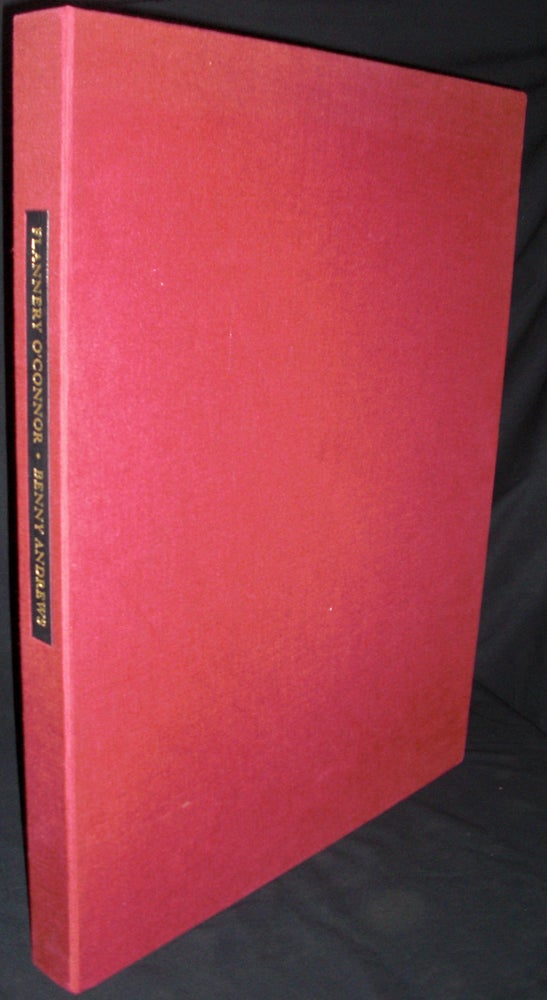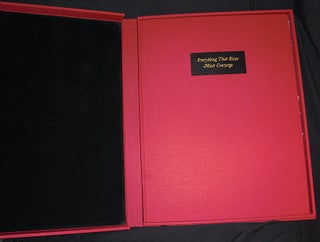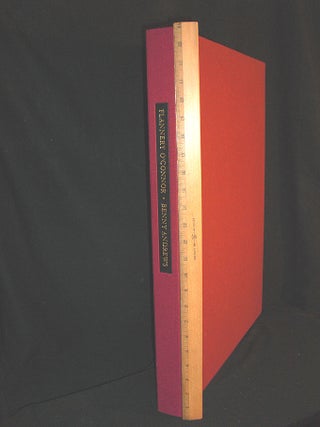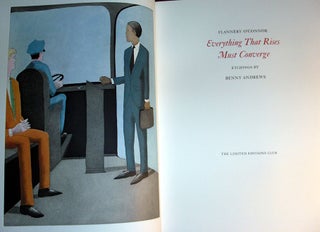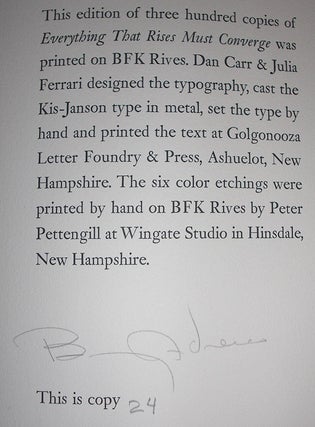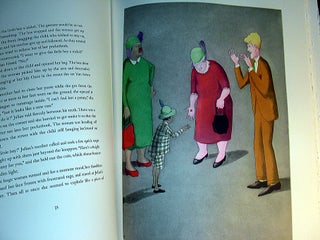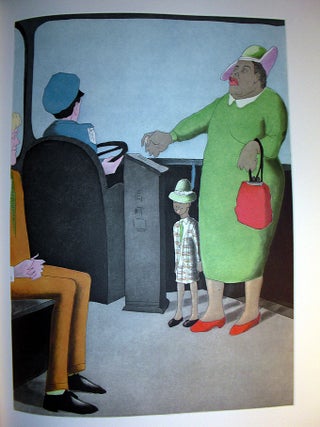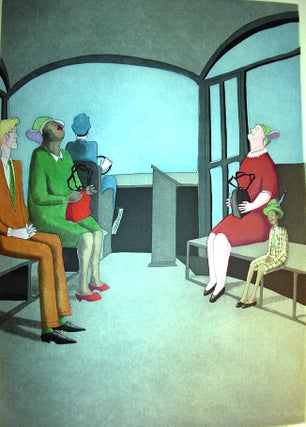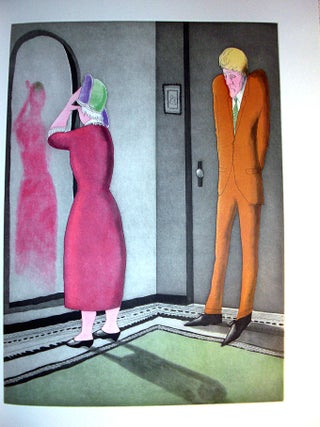Everything That Rises Must Converge.
New York. Limited Editions Club. 2005. This Edition Limited to 300 numbered copies of which this is #24. Signed by Benny Andrews to Colophon. Illustrated with six original colour etchings by Benny Andrews, hand printed on BFK Rives by Peter Pettengill. Elephant Folio. 17" x 22". Bound in full crimson cloth over boards. Gilt-titled grain morocco label inset to front cover. Encased in like covered Solander box with gilt-titled grain morocco label inset to spine.
Everything That Rises Must Converge is a collection of short stories written by Flannery O'Connor during her final illness. The title of the collection and of the short story is taken from a passage from the work of Pierre Teilhard de Chardin. The collection was published posthumously in 1965.
Just one year before her death in 1963, Flannery O’Connor won her second O. Henry Award for ‘‘Everything That Rises Must Converge,’’ a powerful depiction of a troubled mother-son relationship. In 1965 the story was published in her well-regarded short fiction collection, Everything That Rises Must Converge.
Most critics view ‘‘Everything That Rises Must Converge’’ as a prime example of O’Connor’s literary and moral genius. The story exemplifies her ability to expose human weakness and explore important moral questions through everyday situations. Considered a classic of the short story form, ‘‘Everything That Rises Must Converge’’ has been anthologized frequently.
The story describes the events surrounding a fateful bus trip that an arrogant young man takes with his bigoted mother. The mother insists on her son’s company because she doesn’t like to ride the bus alone, especially since the bus system was recently integrated. The tensions in their relationship come to a head when a black mother and son board the same bus.
O’Connor utilizes biting irony to expose the blindness and ignorance of her characters. The story’s title refers to an underlying religious message that is central to her work: she aims to expose the sinful nature of humanity that often goes unrecognized in the modern, secular world.
A Very Fine, Pristine,apparently unread copy. Near Fine+ Box presents very mild sunning to top edge of front panel,small bump to fore-edge and two corners and a small, benign patch of darkening to upper rear panel. A Very Rare and important LEC issue.
Item #8574
Price: $7,500.00

